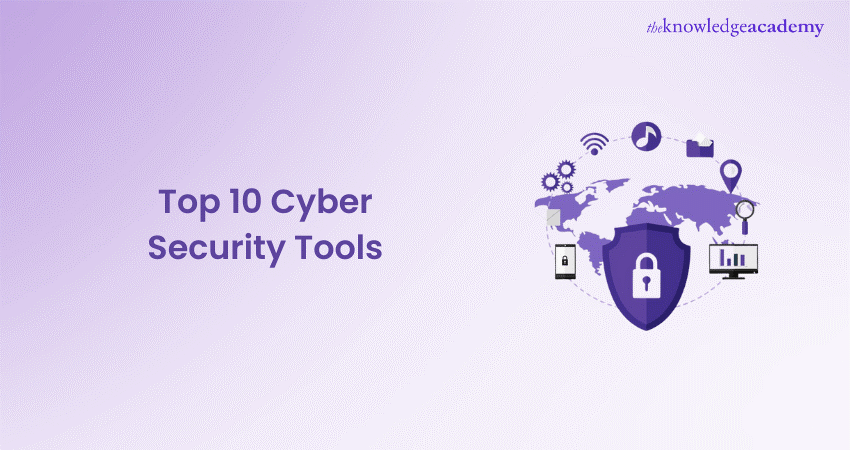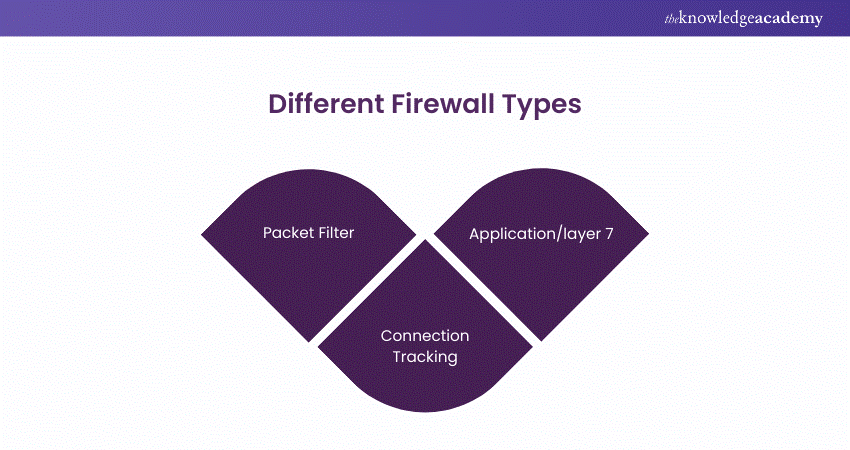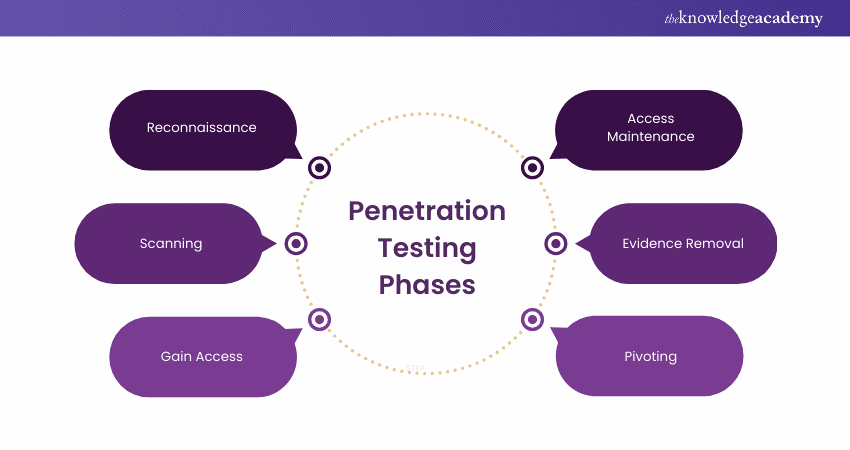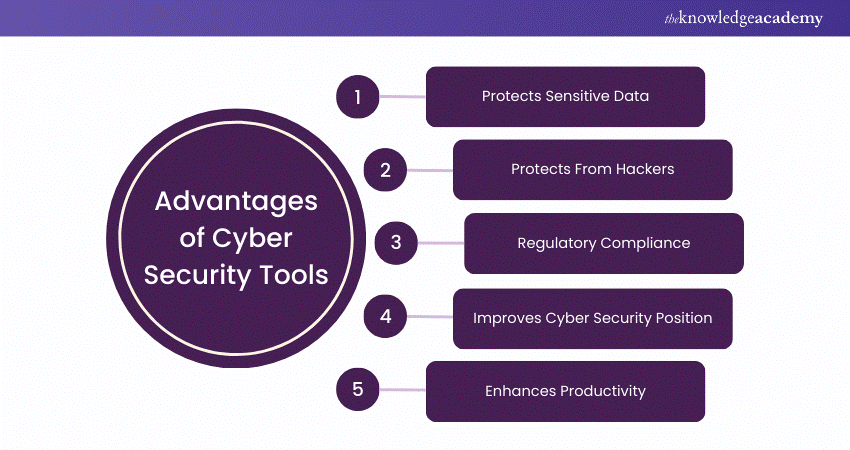We may not have the course you’re looking for. If you enquire or give us a call on 0800 446148 and speak to our training experts, we may still be able to help with your training requirements.
Training Outcomes Within Your Budget!
We ensure quality, budget-alignment, and timely delivery by our expert instructors.

With cyber-attacks becoming more sophisticated; it’s crucial to stay one step ahead. According to a survey by the World Economic Forum, 81% of leaders feel more exposed or similarly exposed to cybercrime compared to last year. Are you equipped with the right Cyber Security Tools to protect your organisation from these ever-evolving threats?
Cyber Security Tools are vital for identifying vulnerabilities, preventing breaches, and ensuring compliance with industry standards. In this blog, we will explore the top tools that every organisation must know. These tools provide advanced threat detection, robust encryption, and comprehensive security solutions to safeguard your digital assets. Let’s delve into these tools and enhance our defence against cyber threats.
Table of Contents
1) What are Cyber Security Tools?
2) Types of Cyber Security Tools
3) Top 10 Cyber Security Tools
4) Benefits of Cyber Security Tools
5) Conclusion
What are Cyber Security Tools?
Cyber Security Tools help businesses identify, assess, and mitigate IT Security risks. The main objective of such tools is to secure the data, network, and systems. Organisations use these tools to maintain their privacy on the internet and safeguard their systems and data. These warn the users of potential risks within a system or network. In essence, IT Security tools defend the firm's network, intellectual property, and systems from cyberattacks. They also provide protection against cybercrime like identity theft and password trafficking.
Features of Cybersecurity Tools
The role of Cyber Security Tools in modern internet-based business operations is critical. There are several types of IT Security tools that companies can use. In the following points, we present some of the features of these tools.
1) They enable regular scanning of systems and network
2) Two-Factor Authentication provides an additional layer of security
3) They manage both internal and external threats
4) These tools help in complying with the regulatory requirements
5) Provides detailed security analytics
Types of Cyber Security Tools
Tools in Cyber Security are essential for safeguarding digital assets and guaranteeing the integrity of network systems. These tools help organisations detect, prevent, and respond to various cyber threats. They range from antivirus software to advanced penetration testing frameworks, each serving a unique purpose in the Cyber Security landscape. Let’s explore some key types of Cyber Security Tools:
1) Network Security Monitoring Tools
Network monitoring software enables administrators to ensure optimal network performance and proactively identify potential issues. It offers a comprehensive view of all connected devices.

They enable System Administrators to track data flow and swiftly address any issues that could compromise network performance or cause outages.
2) Web Vulnerability Scanning Tools
Vulnerability scanners are essential tools that help organisations identify potential Cyber Security threats by detecting vulnerabilities within their IT infrastructure. Organisations frequently employ multiple vulnerability scanners to obtain a comprehensive threat assessment.
3) Network Defence Wireless Tools
Wireless network defence tools can greatly enhance security by safeguarding data while preserving the network’s usability and integrity. Network access is managed through a combination of hardware and software technologies.
4) Encryption Tools
Encryption secures data by converting text into an unreadable format for unauthorised users. Examples of encryption tools include Tor, KeePass, VeraCrypt, NordLocker, AxCrypt, and TrueCrypt.
5) Firewalls
Being network security systems, Firewalls monitor and control the flow of incoming and outgoing data.

They assess data traffic at their boundaries and use predefined rules to determine which data is allowed to pass through.
6) Packet Sniffers
A packet sniffer, also known as a packet analyser, protocol analyser, or network analyser, is used to intercept, log, and analyse network traffic and data. Examples of such tools include Wireshark, Tcpdump, and Windump.
7) Antivirus Software
Antivirus software utilises known attack profiles to scan your system for malicious programs. It identifies and removes unwanted elements, helping you protect against many of the most dangerous cyber threats.
8) Managed Detection and Response Services
Managed Detection and Response (MDR) services are third-party solutions that help organisations monitor, address, and eliminate threats. They provide continuous security monitoring and incident response to ensure robust protection against cyber threats.
9) Penetration Testing
Penetration testing, also known as a pen test or ethical hacking, is a Cyber Security method that simulates a cyberattack on a system. This technique aims to uncover vulnerabilities within the system and assess the probability of a breach.

Additionally, it helps Cyber Security professionals identify the most robust parts of the system that do not need immediate improvement.
10) Public Key Infrastructure (PKI) Services
PKI services facilitate the distribution and identification of public encryption keys, allowing secure communication over the web while verifying the sender’s identity. They also enable the encryption of sensitive data, making sure that the authorised parties can only access it.
Join our Cyber Security Risk Management Course to learn skills in detecting and investigating a Cybercrime.
Top 10 Cyber Security Tools
Cyber Security Tools help to identify vulnerabilities, prevent attacks, and ensure compliance with security standards. Below are the top 10 such tools that every organisation should consider implementing:
1) Kali Linux
Kali Linux stands out as one of the most popular and user-friendly Cyber Security Tools available. It provides over 300 tools that organisations utilise to monitor their network systems for vulnerabilities. A key advantage is its adaptability, catering to experts with varying levels of expertise. Notable features include compatibility across multiple devices and environments, open-source integration, exceptional utility in security auditing with a focus on penetration testing, and continuous enhancements from a vast community of users.
2) TrueCrypt
It is one of the most popular encryption tools, even though it has not been updated in several years. TrueCrypt was designed and developed for 'on-the-fly' encryption. It possesses the power and capability to encrypt an entire storage device. Further, this tool also allows security professionals to encrypt layered content using two different access control types. Due to this reason, TrueCrypt is still a popular tool for encryption despite no update in years. It is installed in the computer's administrator account; then, any registered user can use this tool.
3) Cain and Abel
It is a password recovery tool and one of the best in this field. Although it was designed and developed to run on a Microsoft Windows system, but can support methods of password recovery on other systems. It can sniff the local network for passwords shared with other devices using POP3, HTTP/HTTPS, SMTP, and other protocols to recover the passwords. In addition, it can also use different methods, like network packet sniffing and brute force, etc., for password recovery. Further, Cain and Abel can record VoIP communications and analyse routing protocols to determine the chances of the routed data packets getting compromised. This tool can also recover cached passwords. It uses brute force to crack the encrypted passwords.
4) Malwarebytes
One of the best Cyber Security Tools for protecting against Ransomware, Malware, Malicious websites, and other online threats are Malwarebytes. It can identify and block the threats that antivirus software cannot. Further, it is a multi-purpose tool that can troubleshoot and repair to resolve problems quickly. It can protect the systems on multiple levels and is a robust and effective solution for managing Cyber Security.
5) Forcepoint
It is a Cyber Security Tool aimed mainly at cloud users. Forcepoint defines network security as preventing users from accessing unauthorised content and detecting and preventing hacking attempts. The main benefit of utilising this tool is that it combines different technologies into a single platform. This tool allows the IT security team to explore, categorise, supervise, and secure data with minimum user friction. It is the only Cyber Security Tool that can be customised. These customisations help block attempted cyberattacks. This tool warns cloud users about potential Cyber Risks and thus helps to secure their data. Forcepoint provides an extra level of security to sensitive and critical information.
6) Wireshark
Formerly known as Ethereal, it is a free and open-source Cyber Security Tool. It analyses network traffic in real-time by capturing data packets from a network connection. It is one of the most effective tools for analysing network protocols and is used mainly for identifying and diagnosing network security. Network administrators can use this tool to troubleshoot any problems within the network. Wireshark analyses the network in real-time and evaluates any vulnerabilities. It helps in the easy identification of vulnerabilities in the network's security.
7) Tor
One of the most impactful network security tools is Tor. It is an open-source privacy network and allows users to browse the web anonymously. It hides the user's IP address and browsing activity by routing the traffic through a network of routers known as nodes. The key users of Tor are those who want to protect their online privacy. Using the Tor browser makes it hard for authorities and Internet Service Providers (ISPs) to track user activity and trace their online presence.
8) John the Ripper
It is considered a vital IT security tool mainly used to test password strength. This tool identifies weak passwords that could become a threat to the security of the network. This tool searches for encrypted login attempts, complex cyphers, and hash-type passwords. It is an effective Cyber Security Tool because it is updated regularly by the community as it is an open-source tool.
9) Splunk
Splunk is a real-time analytics-driven tool that collects, evaluates, and corresponds to large amounts of network and machine data. It can function as the main log analysis engine, meaning it performs a thorough analysis of the logs to detect vulnerabilities. With this tool, the Cyber Security Engineers can correspond to the security event and therefore identify the source of the breach. Splunk is a horizontal technology. IT teams use it in managing system information, compliance, security, and business and web analytics.
10) Metasploit Framework
Metasploit is a well-known and widely adopted Cyber Security Tool frequently used by Ethical Hackers to investigate security issues on servers and networks. Cybercriminals can wrongly use the capabilities of this too to detect potential security flaws in a target system. This tool also consists of several scanners for identifying vulnerabilities and threats that can be customised with most operating systems because of its open-source nature. Cyber Security experts and professionals use it to fulfil different security objectives.
Protect your organisation from advanced threats with our Microsoft Cybersecurity Architect SC100 Certification – join us today!
Benefits of Cyber Security Tools
In recent years Cyber Security has become of great importance for companies. It creates robust IT systems for organisations and helps secure the data, preventing cybercrime against them. Cyber Security is imperative for companies now, as it saves significant resources and helps strengthen their position in the market. In light of the fact hackers and cybercriminals are upgrading their methods to execute cyberattacks, a robust Cyber Security system is crucial for companies. Following are some of the benefits of Cyber Security Tools.

1) IT Security Tools encrypt data, adding another protection layer against cyber-attacks, and preventing significant damage from data leaks to the public or competitors.
2) These tools provide an added level of security, making it difficult for hackers and cybercriminals to breach systems and access data.
3) IT Security Tools help companies comply with laws and regulations like GDPR, avoiding severe penalties and maintaining a positive company image.
4) These tools enhance overall Cyber Security, offering comprehensive digital protection, quick response to threats, and tracking activities to prepare for cyber-attacks.
5) By preventing cyber-attacks and minimising downtime, IT Security Tools help maintain workflows and operations, leading to better performance and goal achievement.
Conclusion
Build a resilient defence against cyber-attacks with our Cyber Security Awareness Training – secure your place now!
In an era of constant digital threats, equipping your organisation with the right Cyber Security Tools is essential. Using these top 10 tools, you can strengthen your defences, safeguard sensitive data, and stay ahead of cybercriminals. Enhance your Cyber Security strategy and ensure that your digital assets remain secure.
Elevate your expertise with the Certified Cyber Security Professional (CCS-PRO) Course – join now and become a Cyber Security Leader!
Frequently Asked Questions

The three main security tools to protect your computer from threats are antivirus software, firewalls, and anti-malware programs. These tools help detect, prevent, and remove malicious software.

Coding knowledge is beneficial but not always necessary for Cyber Security. Many roles focus on network security, compliance, and risk management, which may not require coding skills.

The Knowledge Academy takes global learning to new heights, offering over 30,000 online courses across 490+ locations in 220 countries. This expansive reach ensures accessibility and convenience for learners worldwide.
Alongside our diverse Online Course Catalogue, encompassing 17 major categories, we go the extra mile by providing a plethora of free educational Online Resources like News updates, Blogs, videos, webinars, and interview questions. Tailoring learning experiences further, professionals can maximise value with customisable Course Bundles of TKA.

The Knowledge Academy’s Knowledge Pass, a prepaid voucher, adds another layer of flexibility, allowing course bookings over a 12-month period. Join us on a journey where education knows no bounds.

The Knowledge Academy offers various Cyber Security Trainings, including the Cyber Security Awareness Training, Cyber Security Risk Management Course, and Computer Forensics Foundation Training. These courses cater to different skill levels, providing comprehensive insights into Cyber Security Resume.
Our IT Security & Data Protection Blogs cover a range of topics related to Cyber Security Tools, offering valuable resources, best practices, and industry insights. Whether you are a beginner or looking to advance your IT Security and Data Protection skills, The Knowledge Academy's diverse courses and informative blogs have got you covered.
Upcoming IT Security & Data Protection Resources Batches & Dates
Date
 Certified Cyber Security Professional (CCS-PRO)
Certified Cyber Security Professional (CCS-PRO)
Fri 17th Jan 2025
Fri 7th Mar 2025
Fri 23rd May 2025
Fri 18th Jul 2025
Fri 12th Sep 2025
Fri 12th Dec 2025







 Top Rated Course
Top Rated Course



 If you wish to make any changes to your course, please
If you wish to make any changes to your course, please


